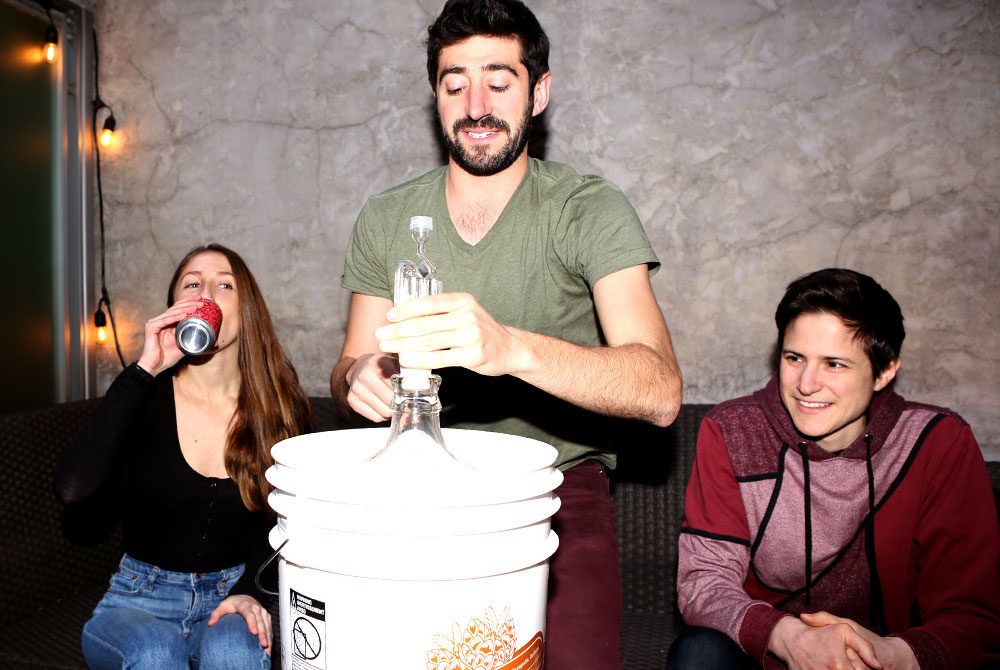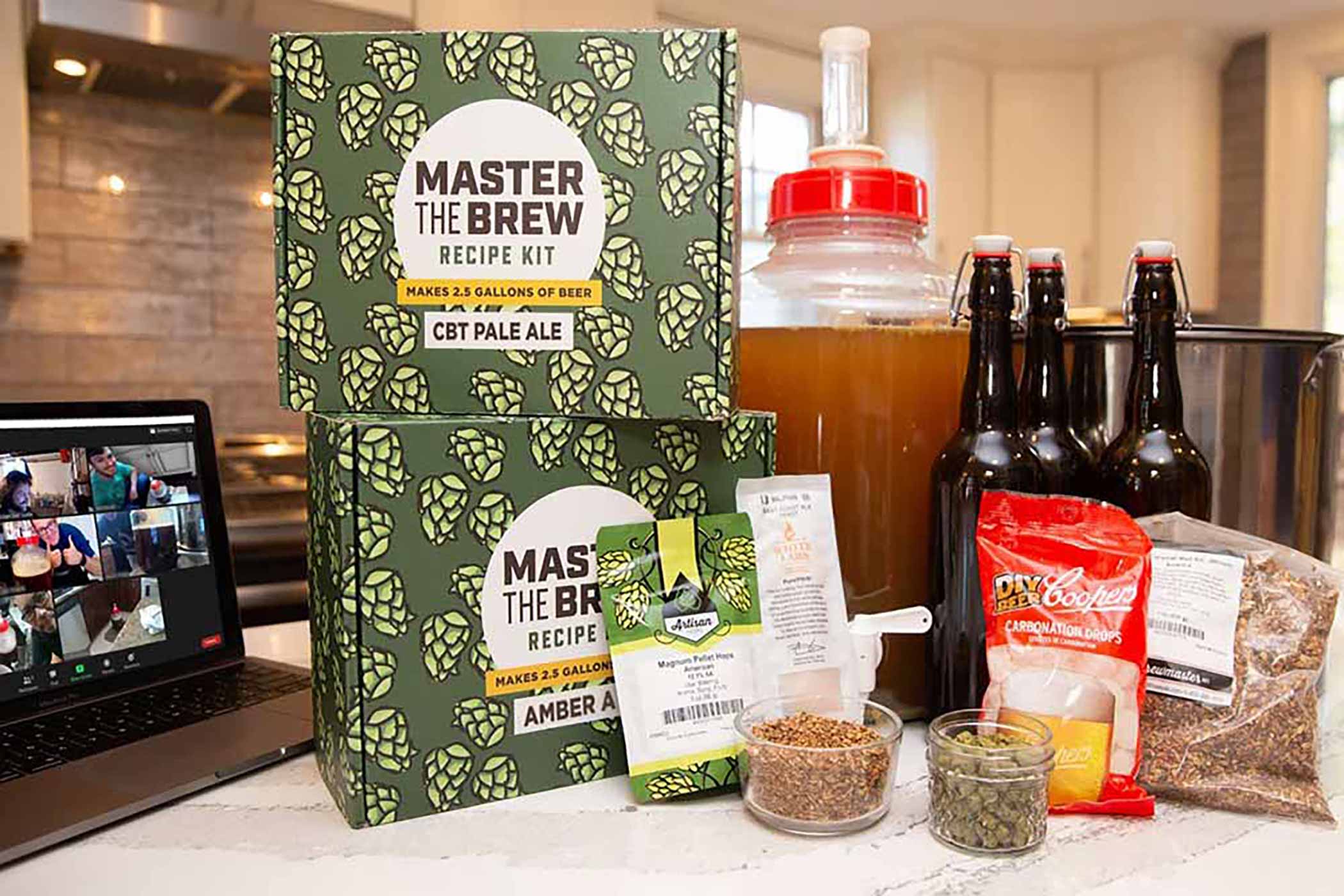Updated on May 2, 2022
Brewing a beer is not necessarily a hard task (yes, all members of Hop Culture from Founder Kenny Gould to Managing Editor Grace Weitz have done it before). Gasp! You’ll need to maintain consistent temperatures and keep all of your equipment extremely clean, but homebrewing is an accessible, although potentially time-consuming, hobby and passion for many. In fact, there are 1.1 million homebrewers in the US alone, according to the American Homebrewers Association (AHA). On Saturday, May 7th, 2022, we celebrate National Homebrew Day. So we thought we’d give you all the tools and tips from the professionals to help kickstart your homebrewing hobby.
Really, all you need are a few basic essentials, a couple hours, and a space to brew. It’s that easy. (Looking for the easiest way to start homebrewing? Try some of our Hottest Homebrew Kits of 2022!)
In fact, talk to enough professional brewers and brewery owners, and you will find that most started their brewing careers as homebrew hobbyists. It takes an incredible amount of planning, money, time, and support to take the homebrew passion to a brewing profession, but that leap is possible.
We asked five professionals from around the country about how they took homebrewing to the next level and what tips they have for those starting out as homebrewers.
7 Tips from the Professionals on How to Homebrew
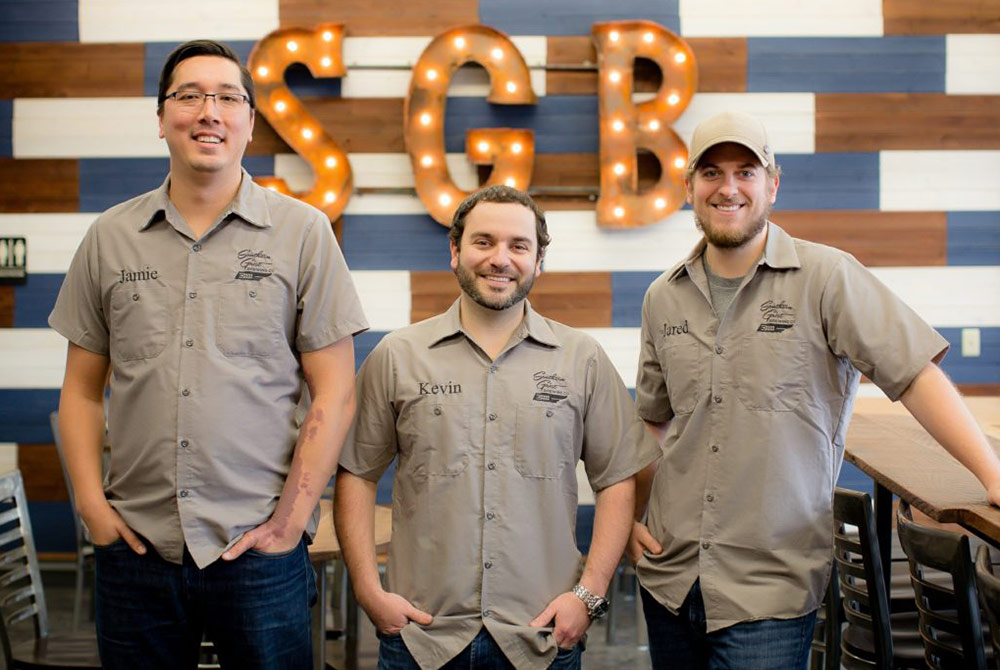
What was the worst experience you had while homebrewing? Any horror stories?
Jared Welch, Co-Founder & Head Brewer, Southern Grist Brewing Co.: I’ve had a couple of issues, but perhaps the scariest was my very first brew. I was living in Columbus at the time with my brother in a second-story condo. The porch area was screened in and had a wood-slatted floor; directly below was the first-story renter’s porch area. I decided to brew my first beer out on our porch without realizing the seriousness of boil-overs. I stood over the pot (filled too high, because, again, it was my first time) and thought I could tame the boil/break with a spray bottle of water. I had almost a dozen close calls of boiling over my wort, spilling it all over the porch area, and splashing it down onto our first-floor neighbors’ porch. After a while, I stopped the whole thing and carefully moved my operation out to some common area on concrete. I tried to hide my homebrew under a stairwell so people did not get suspicious. It was a stressful start to the hobby!
Kyle Harrop, Founder & Head Brewer, Horus Aged Ales: Easily my worst experience came during grad school while living in an apartment down the street from campus. I had a tiny closet with all of my clothes and a couple cases of bottles. I stored my beer there because it was the most temperature-controlled area in the whole place. Long story short, I did not leave enough head space in one of the three carboys I had going at the time. My first stab at an English Barleywine ended up redecorating all of my clothes and walls! After several loads of laundry and [sessions of] repainting the walls, I learned a valuable lesson. My room smelled like Maris Otter for quite some time. Even though the airlock and tube blew off for an unknown amount of time, the beer actually turned out great.
Andy Miller, Co-Founder & Co-Brewer, Great Notion Brewing: I once had a glass carboy full of sanitizer break while I poured it out in my sink. It sliced me up pretty good and blood spewed all over the kitchen while the sanitizer rained in my finished basement. That day I decided that glass carboys were too dangerous and purchased some plastic ones. My toddler may have learned some new words.
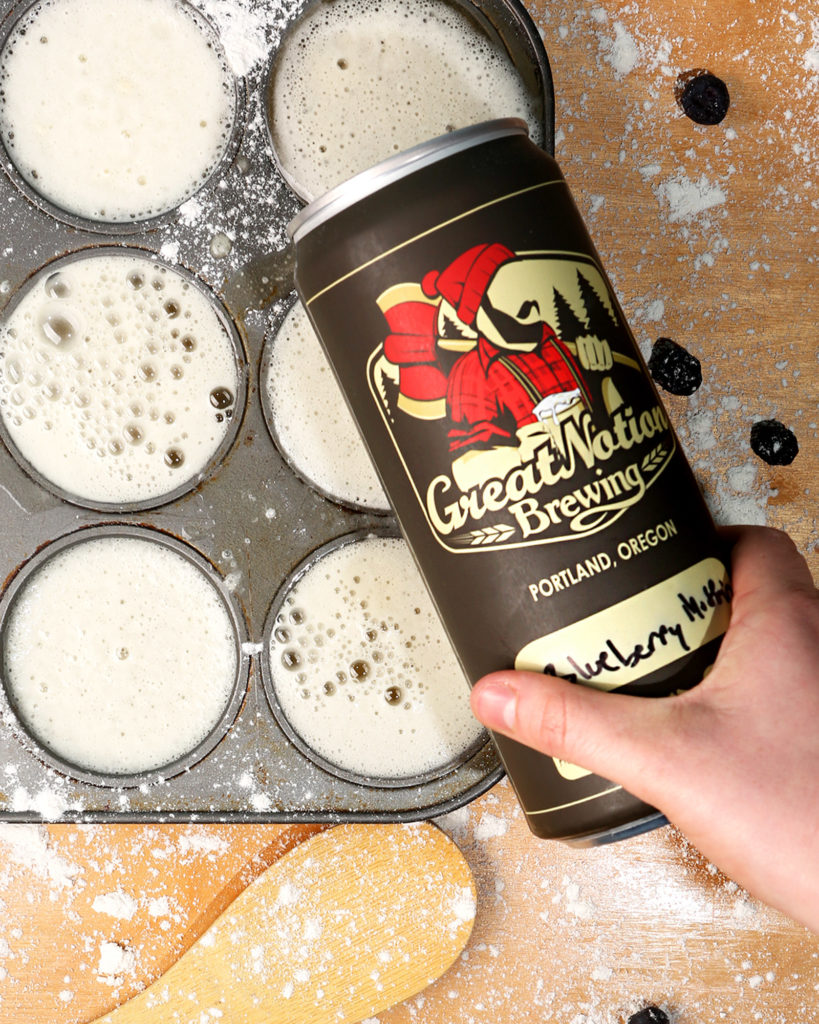
Alex Wallash, Co-Founder & Sales and Marketing, The Rare Barrel: My worst experience was sharing the first beer I made with my college roommates. It tasted like pennies, and I could not stand it. My roommates still drank it—because it was free beer—but it was vile. I figured if I am going to be sharing my beer with other people, I needed to learn more, so I started reading a lot about homebrewing and beer styles. In the quarter before graduating from UC Santa Barbara, I spent way more time reading about homebrewing than I did studying for my molecular biology major. I came pretty close to not passing a microbiology course because I was focusing so much on reading about beer!
John Parks, Head Brewer, Zillicoah Beer Co.: I think my worst homebrewing experience might have been when I brewed a helles bock solo on an uncovered deck and it started to hail. It was painful. Ended up naming that one Hail? Yes! Bock.
Conversely, when did you know you could turn a hobby/passion into a full-time job?

JW, Southern Grist: I always had the pipe dream every homebrewer has to start their own thing. I suppose it was when Kevin (Antoon) and Jamie (Lee) approached me and said they were serious about starting a brewery that I realized this might actually happen. That was a pretty cool day.
KH, Horus Aged Ales: For me, it was a combination of things: My wife pushing me to follow my dream, friends enjoying my homebrews, a health scare, and a relentless passion for beer. In hindsight, I probably should have pursued [professional brewing] a lot earlier, but it took a perfect storm of things to give me that final push. Timing is everything. I just was not comfortable becoming a professional until I spent over a decade refining my craft.
AM, Great Notion Brewing: I do not know if I ever fully knew until it happened. I was fortunate enough to be a stay-at-home dad for six years before this crazy thing started. During those years, I had a lot of time to devote to recipe development and to work on the business plan. One thing that I think was really important was having three of us [experienced in] different skill sets. James Dugan (co-founder) and I knew a lot about brewing beer, but we had no capital. Initially, we were trying to open a 3 BBL brewery in an old gas station with no money. Luckily, we met Paul Reiter (co-founder), and he made the business side of things happen. He secured an SBA loan for us and we were able to buy an existing 7 BBL brewpub. A 3 BBL system would not have worked for us. We had trouble keeping beers on tap with a 7 BBL system. There’s so much more to this business than brewing beer!
AW, The Rare Barrel: Jay, my college roommate at UCSB, and I decided to start a brewery right around college graduation. We loved how beer brought people together, and were young with just the right amount of naïveté. We also knew that we had no professional experience, were not making good beer, and had no money. We sat down at Hollister Brewing Company and made a list of all the things we did not know how to do and started working down that list.
JP, Zillicoah Beer Co.: I knew I could make brewing a full-time job after moving to Asheville, NC. I had never been aware of small breweries making beer by hand. Seeing the scene of small breweries convinced me that brewing was what I wanted to do every day.
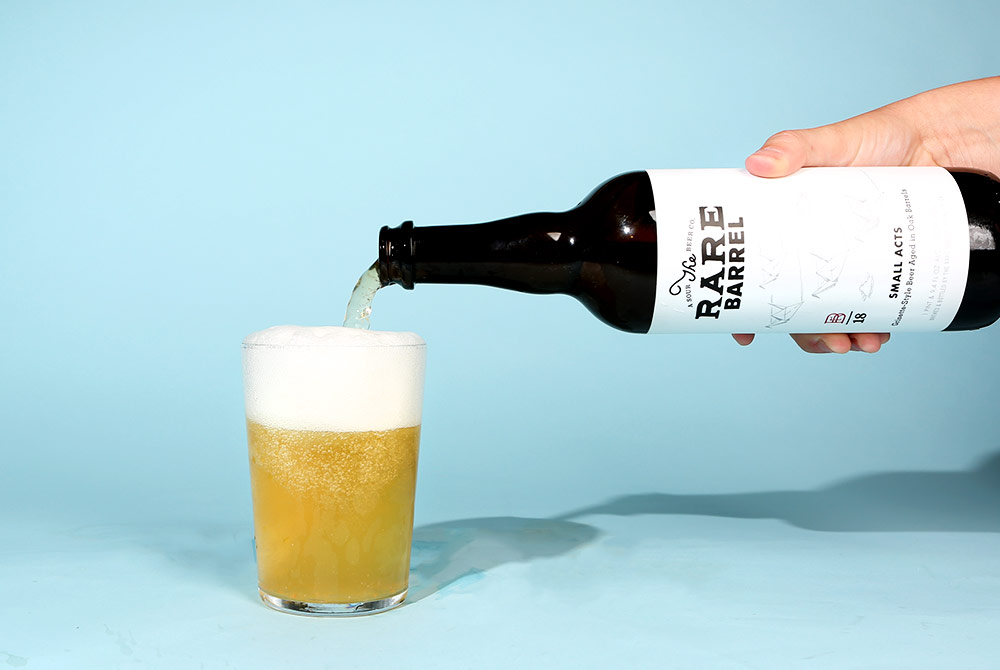
What was the most significant difference between homebrewing and brewing on a professional level?
JW, Southern Grist: Man, there is a lot. One of the big ones I’d say is that homebrewing is strictly a hobby/passion project. Basically, you can do whatever the hell you want! On a professional level, while I still do some crazy things, at the end of the day brewing is a business. I cannot make the same pint of beer I used to at home, where COGS (cost of goods sold) were $8 a glass (laughs). Scaling up and learning how to brew with real equipment was also a big change.
KH, Horus Aged Ales: I noticed volume the most. Making that jump from a 1.5 BBL homebrew system to a 7 BBL or 15 BBL [professional system] is significant. It’s not just a simple matter of scaling up your recipes by multiplying the percentages of your grain bill based on the new volume. There are too many factors to list, but some things I needed to adjust to at the beginning were direct fire to steam differences, along with adjunct and barrel contact times. The smaller the vessel, the faster flavors will impart. This has been true for my methods with adjuncts and deciding how long things have to stay in barrels since I am using much larger equipment now.
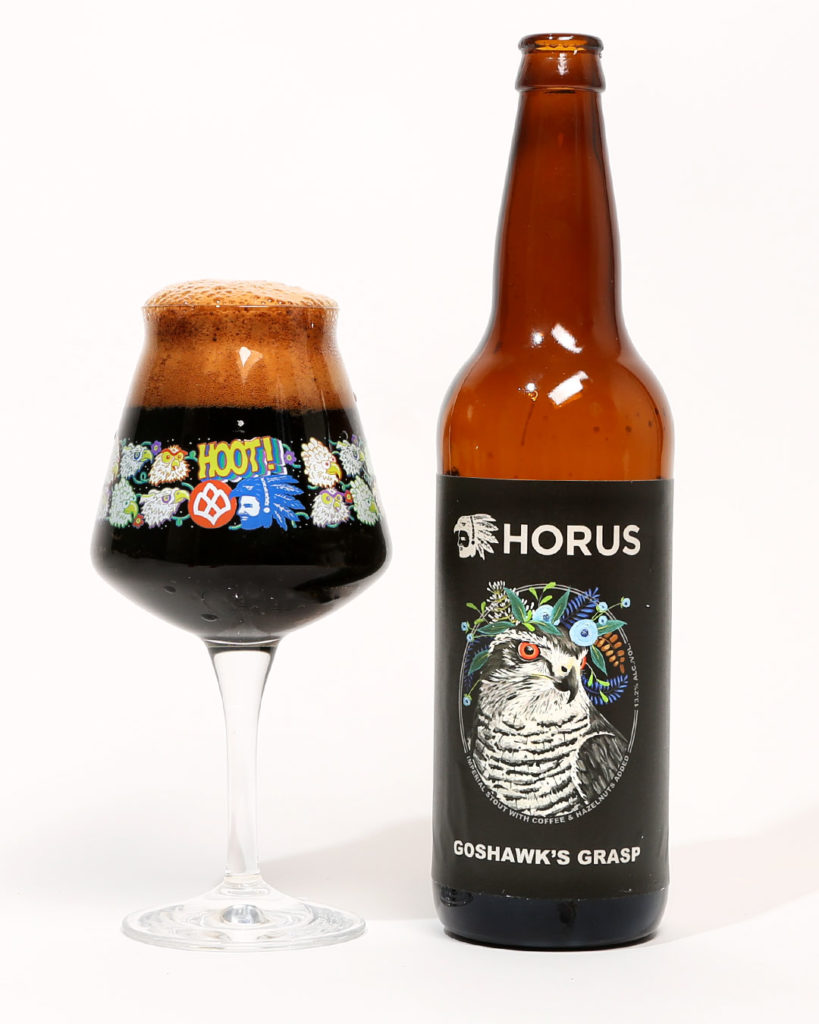
AM, Great Notion Brewing: Everything scaled up pretty well. We placed third in a blind IPA competition with our first commercially made beer, Juice Jr. I think since we brewed IPAs with restrained bitterness we had an easier time than people who scaled up to bitter bombs. The main difference was learning how to schedule brews and manage our yeast. At home, you brew what you want whenever you want. Commercially, you commit to a certain beer being ready at a specific time. You have to really plan that out.
Another thing that was different to me was brewing the same beer consistently. It can get a little boring. We had a small pub and kept running out of our “flagship” beers, so we spent the great majority of our first couple years brewing the same five beers over and over again. We had lots of ideas that we were unable to use until we opened our new facility. Luckily, now that is not a problem. We have tons of different projects going on simultaneously.
AW, The Rare Barrel: I’ve homebrewed a bunch, but I have never actually been a professional brewer. Jay brought the professional brewing side to our team at The Rare Barrel. That being said, one of the most significant differences between making sour beers on a homebrew and professional level is having a variety of barrels (or carboys) to blend together. Almost all of our beers are blended, which adds a real artistic element, but also a significant advantage because you can select different barrels based on their attributes to make a sum that is greater than the parts. It’s like the difference between trying to paint with one color or ten colors. I’d recommend that if you are going to make sour beer on a homebrew level, get a couple of carboys going so that you have some blending stock.
JP, Zillicoah Beer Co.: The biggest difference between professional brewing and homebrewing was the amount of cleaning I did on the pro level: 90% cleaning, 10% brewing.
Aside from the basics, what was one homebrew tool, book, or piece of gear that became essential to homebrewing?
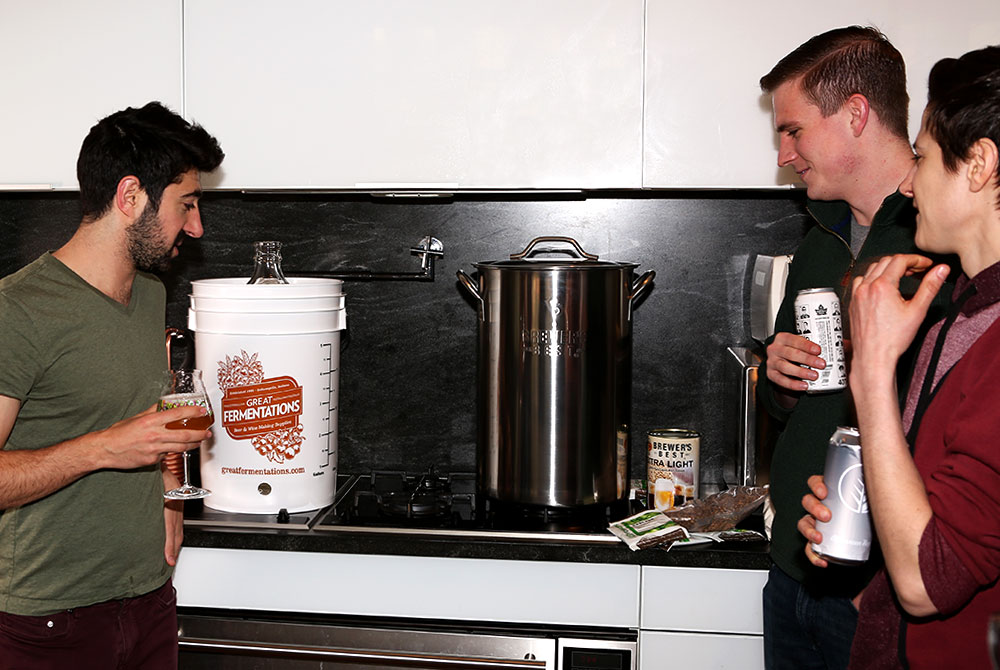
JW, Southern Grist: I was a devout Brewing Network listener; I really learned a lot from that podcast back in the day. I am dead serious when I say that I would listen to it every night while I worked out at the gym. Also, I read three or four books before I ever brewed my first batch. I think education and understanding is key.
KH, Horus Aged Ales: Ironically, the book that became essential to my brewing was The Compleat Meadmaker by Ken Schramm. While I also dabble in meadmaking at home, it really improved my brewing, especially with stout recipe formulation and barrel-aged sour re-fermentation. The book taught me how to look at complex sugars in new ways, open my mind to different fruiting techniques, staggering fermentation, and yeast exhaustion, and of course, how to handle honey.
AM, Great Notion Brewing: The book I used the most was Jamil Zainasheff’s Brewing Classic Styles. I loved brewing a similar recipe from the book and then slowly getting further and further away from the classic example. Also, the two tools that I would really suggest would be a refractometer and a pH meter. The refractometer just makes life easier on brew day and the pH meter is helpful in so many different applications.
Looking for this home brewing gear? Here are our choices for a great refractometer and pH Meter from Adventures in Homebrewing.
AW, The Rare Barrel: Temperature-controlled fermentation is probably the most important piece of equipment you can use as a homebrewer. It’s all about dialing in your fermentation. I still remember the day that Jay and Brit surprised me with a special birthday gift, a refrigerator that Jay converted into something I could use to temperature control a carboy and/or as a kegerator. I loved Brit and Jay before they gave me that gift, but I think that really sealed the deal for me marrying the former and becoming partners with the latter.
JP, Zillicoah Beer Co.: I’d have to say Brewing Classic Styles was essential in beginning to understand and develop recipes. Following those recipes is a great way to start.
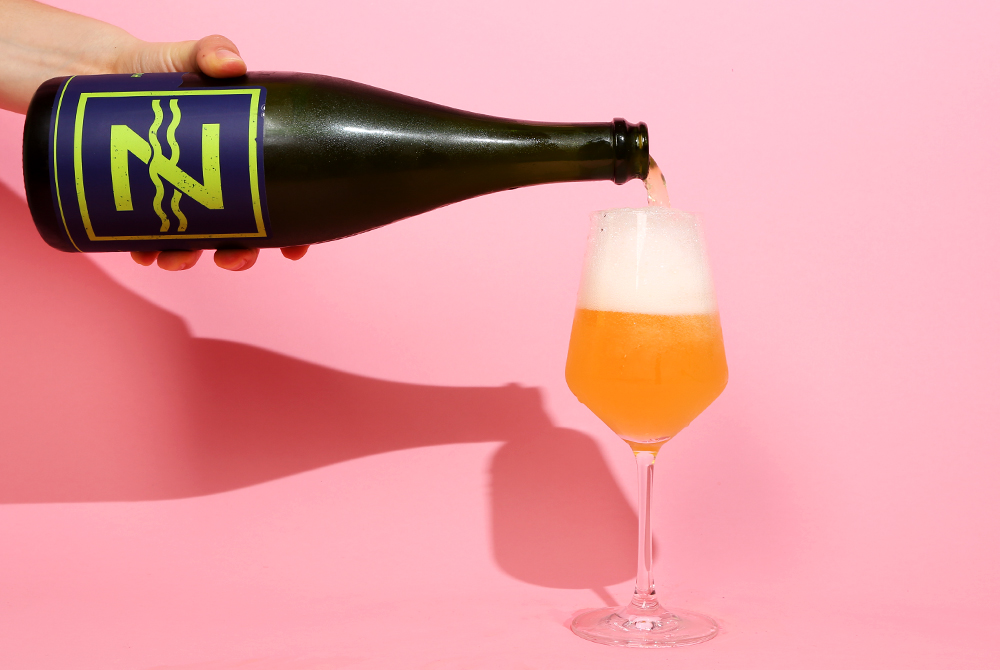
If you were not brewing, what would you be doing?
JW, Southern Grist: Probably sitting in front of a computer somewhere being miserable.
KH, Horus Aged Ales: My dream was always to play baseball professionally, but after my college career ended, I focused on my studies and became involved with accounting in the aerospace industry. I actually still work my day job while Horus continues to be a side project, or glorified hobby as I often call it. With all that said, if I were not brewing or plugging away at spreadsheets all day, I could see myself dragging my family somewhere tropical that had good waves, surfing a lot, and living a simpler life. I guess I will have to wait twenty-five to thirty years to do that, though.
AM, Great Notion Brewing: I have a degree in horticulture, so I would probably be landscaping.
AW, The Rare Barrel: I’d like to think that I’d be living out of a van, endlessly searching for surf.
JP, Zillicoah Beer Co.: If I was not brewing I’d be a pitmaster, or working towards that. Working a smoker is one of my favorite things on earth.
How do you maintain the fun in brewing when most of the job is watching water boil?
JW, Southern Grist: Not walking in every day and pushing the pale ale button is fun for me. I like to be experimental and try stupid things in beer on a weekly basis. Also, we have a really fun work environment; it’s never a dull moment with Kyle, our brewer, and Jason, our cellarman, on the slab day in and day out. Lastly, Jamie recently bought a basketball hoop for the brewery, so that helps.
KH, Horus Aged Ales: For me, there is that familiar smell, excitement, and comfort that I get every time I brew a beer. It’s always fun because it is simply what I love to do. I wish I had more time to do it. I guess I look at it as more of a privilege than a job at this point in my life. Ask me this same question again in a few years if I decide to take the leap and make brewing a sole profession. For now, it is my passion and I am very thankful for the opportunities that this brewing adventure has offered.
AM, Great Notion Brewing: We have a blast in the brewery. We make lots of jokes and poke fun at each other. We have a 23-year-old that listens to nothing but the golden oldies. He got hooked on music from watching infomercials when he was really young. He’s a constant amusement for everyone including himself. Seriously though, we have a really fun team. Everyone respects each other and is pretty positive even when things are not going our way.
AW, The Rare Barrel: Our blending team at The Rare Barrel has a rule: The person who has the worst task at that time gets to choose which music is played in our barrel cellar. This often results in someone playing “Last Christmas” by Wham! on repeat 30+ times…in the middle of summer. I’ve grown to love that song in a sick and twisted way.
JP, Zillicoah Beer Co.: I’d have to say that zero of the job is watching water boil. It’s mostly cleaning and fixing things. Loud music and some good water pressure make for a great day at work.
What’s one piece of advice you would give to a homebrewer?
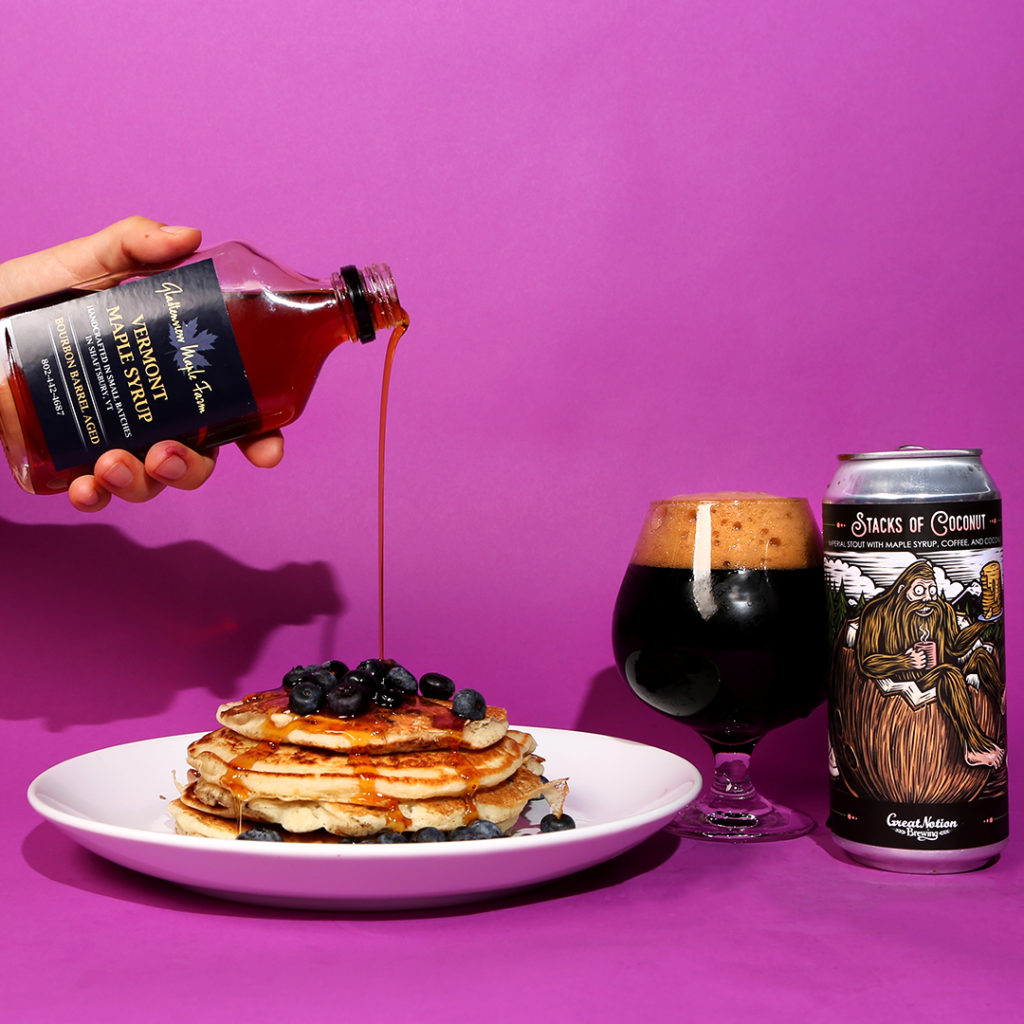
JW, Southern Grist: Take risks and go crazy after you have learned how to really brew. It’s fun to throw chocolate cake into an imperial stout or add 5lb per gallon of raspberries to a sour, but it is more important to brew a quality base beer before using the cool stuff to cover up any potential flaws.
Looking for a great home brewing starter kit? Hop Culture’s favorite choices are the Brooklyn Brew Shop Everyday IPA Kit and Brooklyn Brew Shop Traditionalist Gift Set. Check out Brooklyn Brew Shop for all their recipes from Milkshake IPA to Chocolate Covered Pretzel Porter!
KH, Horus Aged Ales: At the very beginning, you do not get too crazy with extra ingredients. Start small, brew simple styles, and try to perfect a style or two before moving onto some of the harder types of beer to brew. English milds and brown ales were my first few brews, and I think those were a good starting point.
With that said, I went crazy from there and started doing all kinds of experimental stuff, so I guess I am a bit of a hypocrite in that sense. I think brewing the same recipe at different times of the year is fascinating. It is amazing to see what even slight temperature variations can do to an otherwise identical beer. Brewing the same beer while just changing the type of yeast is also a fun endeavor. Possibilities are endless with beer ,and that is part of what is so appealing to me. I never get bored. My best advice is just to have fun and once you are generally comfortable with brewing, never stay stagnant and always see how something could be improved.
To start with a great brown ale recipe, we recommend Brewer’s Best English Brown Ale.
AM, Great Notion Brewing: Don’t ever forget what Charlie Papazian said, “Relax. Don’t worry. And have a homebrew.” Making beer is easy. Keep it simple and have fun doing it. I see a lot of homebrewers that think the next gadget is going to make their beer better. Gadgets are fun and all, but you do not need a RIMS system with a control panel and all the fancy stuff to make good wort. Most of the really important stuff happens in the cellar. Fermentation temperature control and being able to purge vessels with CO2 prior to moving a fermented beer is much more necessary than a fancy brew kettle.
AW, The Rare Barrel: Surround yourself with people who know more than you and are better at homebrewing than you are. Information will flow, and they will push you to make better beer.
JP, Zillicoah Beer Co.: Don’t fuss so much about fancy equipment, mash schedules, water profiles, and all that. Source the best ingredients, focus on yeast and a healthy fermentation, and do not f— it up.
Liked this article? Sign up for our newsletter to get the best craft beer writing on the web delivered straight to your inbox.

